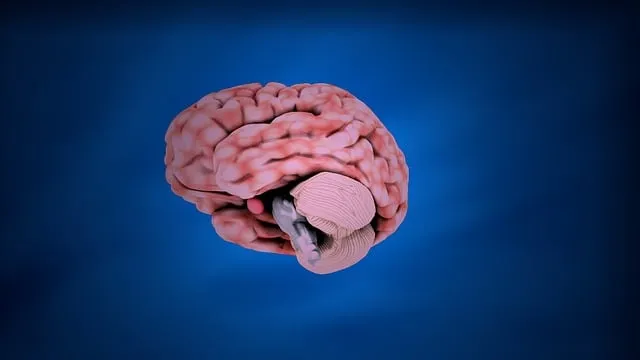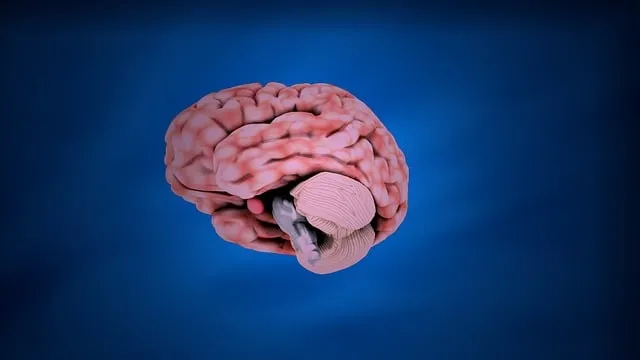Mental health policies are vital for improving access and quality of care at Kaiser Permanente locations in Littleton. By understanding legislation and implementing strategies like cultural competency training, self-esteem improvement, and burnout prevention, these policies drive change. Kaiser Permanente's holistic approach includes preventive measures, therapy, support groups, and stress management programs, reducing stigma and enhancing mental well-being. Despite challenges like limited access and high provider loads, advocacy through community engagement and evidence-based practices can lead to transformative policy changes, benefiting diverse populations across various regions.
Mental health policy advocacy plays a pivotal role in shaping accessible, quality care. This article delves into key aspects of this vital work, beginning with understanding foundational policies and their impact on communities. We explore the significant contributions of organizations like Kaiser Permanente in expanding mental health services, highlighting successful initiatives in Littleton and beyond. Furthermore, we analyze current gaps and challenges, offering strategies for effective advocacy to ensure better mental well-being outcomes for all, particularly in Kaiser Permanente mental health locations like Littleton.
- Understanding Mental Health Policy: A Foundation for Advocacy
- The Role of Kaiser Permanente in Expanding Access to Care
- Analyzing the Impact: Success Stories from Littleton and Beyond
- Challenges and Gaps in Current Mental Health Services
- Strategies for Effective Mental Health Policy Advocacy
Understanding Mental Health Policy: A Foundation for Advocacy

Mental health policies are a cornerstone for advocating and improving access to essential services like those offered at Kaiser Permanente mental health locations Littleton. Understanding these policies is crucial for anyone looking to drive change in the healthcare system, particularly when addressing issues related to self-esteem improvement and crisis intervention guidance. By examining existing legislation and guidelines, advocates can identify gaps and areas that require enhancement.
This knowledge forms a solid foundation for engaging policymakers, healthcare providers, and communities to ensure comprehensive mental health support is accessible to all. Additionally, promoting cultural competency training for healthcare providers is vital to improving patient outcomes and fostering an inclusive environment, reflecting the diverse nature of those seeking mental health services.
The Role of Kaiser Permanente in Expanding Access to Care

Kaiser Permanente has played a pivotal role in expanding access to mental health care, especially in areas like Littleton, where their dedicated locations have made emotional healing processes more accessible. With a comprehensive approach, they offer not just treatment but also preventive measures to promote mental wellness among their members. The organization’s commitment extends beyond traditional healthcare, focusing on holistic well-being.
By integrating burnout prevention strategies for healthcare providers into their model, Kaiser Permanente ensures that the caregivers themselves remain in good mental health. This is crucial as it allows them to sustain and enhance the quality of care they provide. Their efforts have significantly contributed to reducing the stigma associated with seeking mental health services, making it easier for individuals to prioritize their mental wellness.
Analyzing the Impact: Success Stories from Littleton and Beyond

The impact of mental health policies can be best understood through examining success stories from communities like Littleton, where initiatives have significantly transformed lives. One notable example is Kaiser Permanente’s mental health locations in Littleton, which has been instrumental in providing accessible and comprehensive care. Through a combination of therapy services, support groups, and programs focused on stress management, inner strength development, and coping skills development, these locations have shown remarkable results. The success stories from Littleton highlight the power of community-based interventions in improving mental well-being.
These achievements extend beyond Littleton, as similar strategies implemented in various regions have yielded positive outcomes. By focusing on early intervention, integrating care with general health services, and fostering a culture that prioritizes mental health, communities are equipping individuals with the tools necessary to navigate life’s challenges. This approach not only reduces stigma but also empowers people to take charge of their mental health, leading to improved quality of life and enhanced resilience.
Challenges and Gaps in Current Mental Health Services

The landscape of mental health services, while vast, faces significant challenges and gaps, particularly in areas like Kaiser Permanente mental health locations Littleton. One prominent issue is the limited access to care, with many individuals struggling to find appropriate resources within their reach. This disparity is further exacerbated by the lack of specialized services tailored for diverse populations, including adolescents, older adults, and cultural minorities. Despite growing awareness about mental health, societal stigma remains a significant barrier, often deterring people from seeking professional help.
Moreover, healthcare providers, especially those in Kaiser Permanente mental health locations Littleton, face their own unique challenges. High patient loads, long hours, and intense emotional demands can lead to burnout, impacting the quality of care. Effective risk management planning is crucial to mitigate these risks. Implementing evidence-based Self-Awareness Exercises and Burnout Prevention Strategies for Healthcare Providers can enhance resilience and improve patient outcomes. Ensuring that mental health professionals have access to comprehensive training in trauma-informed care and cultural competency is also vital for addressing these gaps.
Strategies for Effective Mental Health Policy Advocacy

Advocating for mental health policies requires a strategic approach to ensure meaningful change. One effective strategy is to leverage existing resources and networks, such as those offered by organizations like Kaiser Permanente mental health locations in Littleton. These centers can serve as hubs for community engagement, providing platforms for sharing insights, organizing campaigns, and amplifying voices of those affected by mental health issues. By fostering partnerships with local, state, and national entities, advocates can build a strong foundation for policy change.
Additionally, incorporating evidence-based practices into advocacy efforts strengthens the case for reform. Techniques like Social Skills Training, Compassion Cultivation Practices, and Mindfulness Meditation have been proven effective in various settings, demonstrating their potential to transform mental healthcare systems. Incorporating these strategies not only enhances the quality of care but also provides tangible data points for policy makers, facilitating more informed decisions that prioritize comprehensive, evidence-driven mental health support.
Mental health policy advocacy is a vital step towards creating a more inclusive and supportive society. As evidenced by success stories in Littleton and beyond, collaborations like those between communities and organizations such as Kaiser Permanente can significantly improve access to care. However, challenges remain, from funding disparities to service gaps, particularly in rural or underserved areas. To move forward, advocates must leverage evidence-based strategies, embrace data-driven approaches, and continue pushing for policies that prioritize mental wellness. By doing so, we can ensure that everyone, regardless of location—including the many Kaiser Permanente mental health locations across Littleton—has access to quality, accessible mental healthcare.






